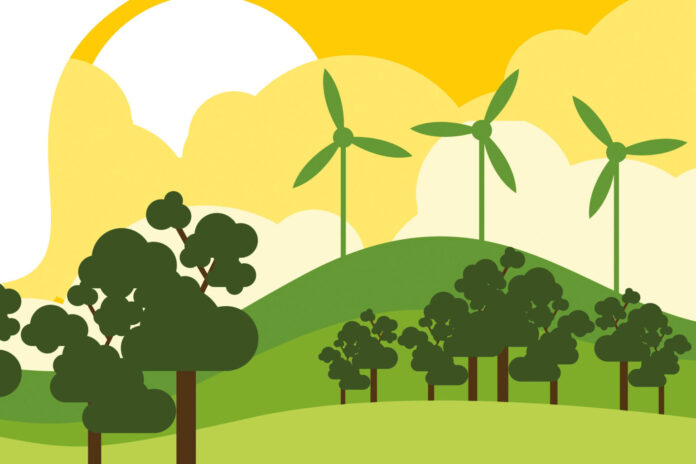
By Alissa MacMillan
Q: We’ve been hearing so much about data centres lately, I wondered just how much my own use, like looking at google maps or streaming movies, is contributing to the data usage. Should I be cutting back?
A: It’s a great question, especially as we’ve been reading recently about the nearly 80 data centres in Ireland, with dozens more in the works, and about just how much energy and water they use – currently one-fifth of the country’s electricity, more than all household use in urban areas combined.
But when it comes to your map clicks, it’s not something you should beat yourself up over, says Dr. Paul Deane, Senior Lecturer is Clean Energy Futures at University College Cork. In fact, those searches might help us to be smarter travellers.
“The energy that goes into that search is far less than the energy that goes into making that journey,” Deane explains. “Some of those searches are beneficial, they increase the efficiency of our travel time and reduce our emissions, while the impact of the search is small.”
Deane notes there are quite a few environmental positives to data centres, those buildings scattered around the country, which whir away at storing and processing the online happenings on your phone and computer, what’s in the cloud or on social media, what’s uploaded and downloaded, and, for businesses, processes and stores things like medical and financial records. As for its benefits, Dean says, “if you use it correctly and wisely, you can make better travel and lifestyle decisions,” like working remotely, getting necessary information, or accessing education.
As with all of our practices, “you should be mindful,” Deane adds. “Every click does have consequences, but it’s relatively small” – a few grams of carbon dioxide pollution.
THE TOUCH TEST
Dwelling on internet use also shouldn’t be a distraction from the real climate impactors, Deane warns. He suggests we instead focus on three major areas: “From a lifestyle perspective, avoid unnecessary travel, eat a healthier diet with less red meat, and avoid heating with solid fuels, like coal or peat.” In those realms, he explains, we are talking about avoiding tons of CO2 instead of the grams used by our phones. Cutting out a few car or plane journeys a year will, literally, make tons of difference.
When you’re thinking about streaming videos – like the evening habit of popping on an episode of ‘Ted Lasso’ – you’re talking about very small levels of carbon dioxide pollution, Deane says. “More energy is consumed by the device rather than streaming from the data centre itself.” An older television, for example, might have higher energy use, while more modern units, thanks to European Commission laws on energy efficiency, use much less.
For computers and phones, Deane advises the touch test: “if the device is getting hot, you’re wasting electricity. If device is the same as room temperature, it’s a good indication it isn’t using much electricity.” Deane reminds us to use a device until the end of its life and replace it with secondhand or repurposed, which makes sense environmentally and economically.
He also explains that, when trying to be mindful, it’s important to distinguish between essential and discretionary use – what we can’t do without versus what’s an inconvenience. Cooking, cleaning, and heating are essential; putting on a cooling fan instead of opening a window is discretionary.
Ireland reduced discretionary use of heating by 10% last year, Deane adds, thanks to a mild winter and higher oil and gas prices. For those who are fit and healthy, you can make these discretionary choices.
CLIMATE TARGETS
All this being said, “Ireland is a small country but we have a big amount of electricity going to data centres,” Deane says, which are serving customers all over the world.
“Ireland deliberately went out and invited tax arrangements and corporate arrangements, we invited and welcomed those industries,” an invitation which is “now pushing up against our ability to absorb that demand.”
“Can we invite more of these data centres to come and use more electricity when we are really struggling for use ourselves?” Deane wonders. “It compromises our ability to reach our climate targets.”
For those of us gripping our old Nokia phones, wondering if smart phones will ever go out of fashion, Deane thinks they won’t.
“The genie is out of the bottle. If we look at our devices, our cameras, diaries, they are so convenient. It would be very difficult to see people stepping back,” not to mention the benefits for education and connecting.
Deane reminds us to be mindful that important things can be lost with our reliance on devices. Smart phones can often distract us from the beauty of the natural environment around us. “When we get distracted from the world, we get detached.” Visiting my family in New York City, I noticed visitors on their smart phones looking for directions while hundreds of New Yorkers strolled past, perfectly able to point the way, no data centre required and a human connection missed.
“Fundamentally, climate action is about caring more for ourselves, our environment, and the people around us,” adds Deane. “We have so much beauty around us in Ireland and we are at risk of losing it.” Being in parklands and appreciating nature increases our empathy and connection and “smart phones are a barrier to that.”











